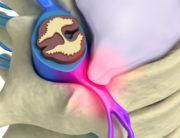Having knowledge of Florida car accident laws can help you before or after you are in a car accident. Here are some of the rules and regulations that apply to car accidents.
You Must Report Car Crashes
If a law enforcement officer came to the scene of the wreck, the officer must file the report within ten days after completing the investigation. If no officer attended the accident, every driver must submit a written report of the crash within ten days of the wreck, using the document form the department of motor vehicles requires.
What You Need to Know About Personal Injury Protection Insurance (PIP) in Florida
Florida is a no-fault auto insurance state, so your vehicle insurance pays your losses, no matter who caused the wreck. State law requires you to carry Personal Injury Protection (PIP) coverage.
What PIP Pays
PIP pays up to 80 percent of your medical, surgical, X-ray, dental, and rehabilitative services. The bills must be reasonable and medically necessary. You must receive your initial medical services (such as from a doctor, urgent care center, or emergency room) within 14 days of the accident.
If you miss the 14-day deadline, PIP will not pay the medical benefits, and you will be stuck with the bills. PIP can also pay some of your lost wages. The maximum that PIP will pay is $10,000 total for your medical costs, lost wages, and disability, or $5,000 in death benefits.
Florida law limits your compensation to PIP benefits and prevents you from filing a lawsuit for personal injuries from a car accident unless you meet the “Permanent Injury Threshold.” Any one of these four situations will satisfy the strict requirements of the Permanent Injury Threshold:
- Death
- An injury that you can prove, within a reasonable degree of medical probability, is likely to be permanent
- Permanent and significant scarring and disfigurement
- Permanent and significant loss of an important bodily function
If you meet the permanent injury threshold, you can file a lawsuit against the negligent party for your damages. Even when there is a significant injury or death, one must prove all the required elements of personal injury liability to hold someone responsible for your losses.
Proving Liability in Florida Car Crashes
As in any personal injury lawsuit, there are four components we must establish to show who must compensate you for your damages.
Duty of care
The at-fault driver must owe you a duty of care. All drivers have a legal duty to drive safely and cautiously.
Breach of the Duty of Care
When a driver breaches the duty of care, for example, by engaging in road racing, this is negligence.
Causation
When the negligence causes a crash that hurts you, the facts satisfy the causation element. For example, if the driver loses control of her vehicle while road racing and slams into you, their negligence caused the wreck.
Damages
If you suffer injuries in the crash caused by the road racing negligence, the facts meet all four elements of liability, and the at-fault driver will be responsible for your damages if you can also satisfy the permanent injury threshold.
Damages in Car Accidents in Florida
You can seek both economic and non-economic damages when you make a claim for damages from a car accident in Florida. Economic damages are things like:
- Medical Costs of all reasonable and medically necessary medical bills from treating your injuries
- Future medical treatment if you will need additional procedures in the future because of your injuries
- Lost wages damages to replace the income you missed because of the crash, medical treatments, and recuperation time
- Decreased earning potential, if you cannot make as much money because of the injuries
- Disability, if you cannot work again because of the harm you suffered
- Long-term care, if you need ongoing assistance and medical care as a result of the injuries
We will also calculate the fair amount of your non-economic damages, such as disfigurement, pain and suffering, loss of enjoyment of life, and loss of consortium.
What Happens if You Were Partly at Fault
You can still get compensation for your losses even if you were partly negligent as long as someone else was also at fault. Florida follows the legal theory of comparative negligence, which reduces the amount of your damages in proportion to your fault. In other words, if your damages were $100,000 and you were ten percent at fault, comparative negligence will reduce your damages by ten percent for a damages total of $90,000.
How Much Time You Have to File a Lawsuit for a Car Accident in Florida
Every state sets deadlines for the amount of time you have to file any kind of lawsuit. These deadlines are knowns as the statutes of limitations. If you do not file before the deadline passes, you are barred from bringing the lawsuit, no matter how much evidence you have to prove your case.
Negligence Cases
If you want to file a lawsuit in Florida seeking damages from the person you claim caused the accident through negligence, you must file suit within four years of the date of the car crash.
Defective or Dangerous Product
If you are suing someone alleging that their defective or dangerous product caused the wreck, you must file suit within four years of the accident. For example, if you are suing the manufacturer of a defective airbag that exploded and caused an accident, you must file the lawsuit within four years of the crash.
Extended Deadlines
Children and people suffering from mental incapacity or other situations which impair their legal capacity to file lawsuits can get extra time to file personal injury lawsuits in Florida – either seven years or the standard deadline for the case, whichever is longer.
Contact Montero Law Center for a Free Consultation
At the Montero Law Center, we advocate for people who suffer harm at the hands of others. Please call us today at 954-767-6500, for your free consultation.
 English
English  Español
Español 




